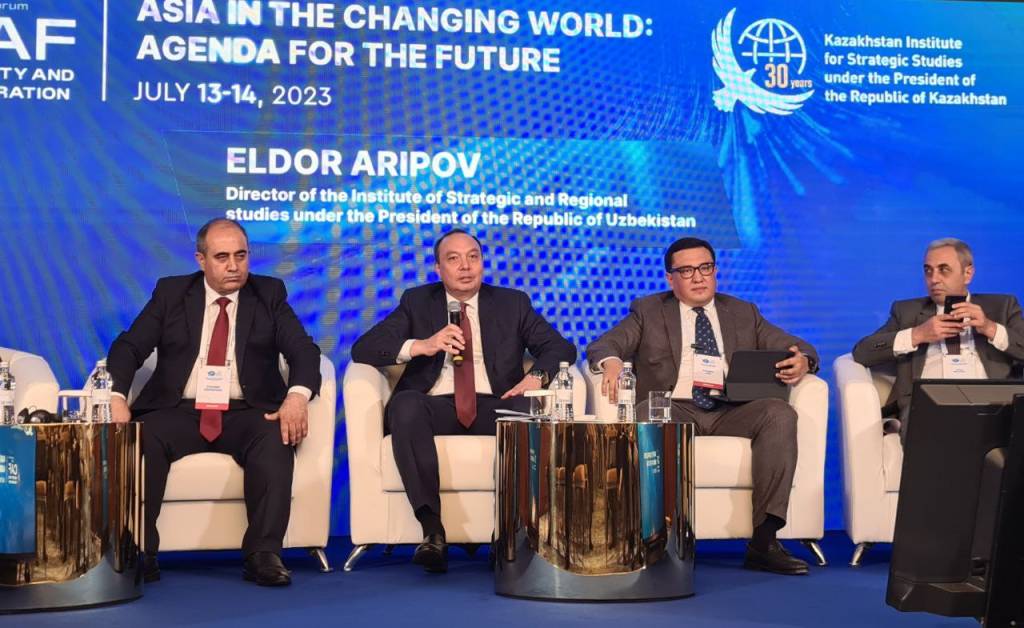ISRS Director took part in the Central Asian Security and Cooperation Forum

On July 13-14, Astana hosted the Central Asian Security and Cooperation Forum on “Asia in the Changing World: Agenda for the Future”, organized by the Kazakhstan Institute for Strategic Studies (KazISS) under the President of Kazakhstan.
The forum was attended by UN high representatives, well-known politicians, and diplomats, and leading experts from the countries of Central Asia, Russia, China, the European Union, the United States, Japan, India, Pakistan, South Korea, the United Kingdom, the United Arab Emirates, Qatar, and other states. More than 60 delegates from 25 countries participated in the event.
Eldor Aripov, Director of the Institute for Strategic and Regional Studies (ISRS) under the President of the Republic of Uzbekistan, delivered a speech at the panel session “Regionalization of Central Asia: in search of a new model”.
In his report, the expert shared his vision of Central Asia’s development for the next 10 years and emphasized the importance of regional identity formation in regional cooperation.
As the ISRS Director emphasized, today, for the first time in many years, there is a clearer understanding that the fate of each Central Asian country will be determined not only by itself, but will also directly depend on the processes that are taking place in the region as a whole.
Eldor Aripov continued by noting that the time in which we live today persistently and insistently requires from us close regional consolidation and further formation of a sustainable model of regionalization.
In this regard, according to the ISRS Director, the tasks of coordinating strategic priorities, the long-term vision of Central Asia, and identifying resources and mechanisms for their practical implementation are paramount.
Discussing the model of future Central Asia, Eldor Aripov identified several main elements on which it will be built.
These include:
1) overcoming the existing fundamental disagreements and contradictions that hamper regional cooperation processes;
2) creation of all necessary platforms and mechanisms for the development of mutually beneficial dialog and cooperation;
3) development of a new model of economic cooperation in the region, providing for the formation of a full-fledged free trade regime between the CA countries;
4) effective defense of common interests in the world arena;
5) preserving Central Asia’s openness as an important condition for constructive cooperation between the region’s states and interested external forces.
In turn, regional identity, according to the ISRS Director, should become the supporting structure of this model. According to Eldor Aripov, regional cooperation can be effective when it is based not only on common interests, but also on shared values and traditions.
In this context, the head of the Uzbekistan delegation paid special attention to the need to develop cultural and humanitarian ties, where an important role can be played by the initiative of the President of Uzbekistan to organize a joint in-depth study of common history, holding the Central Asian Festival of Culture, Art and Cinema with the active involvement of young people in this process.
“This is important for the formation of the foundation on which regional cooperation will be built, so that relying on it, we do not look for differences in the past, but look together into the future and build it together”, the expert concluded.






